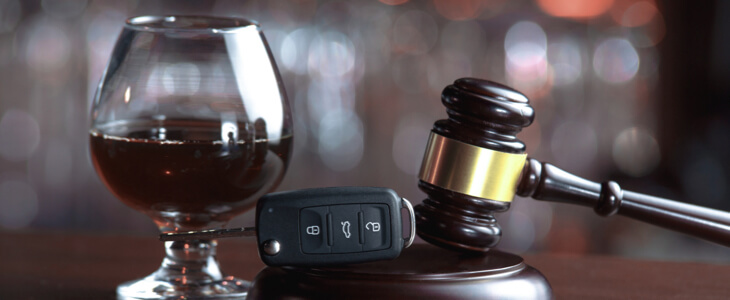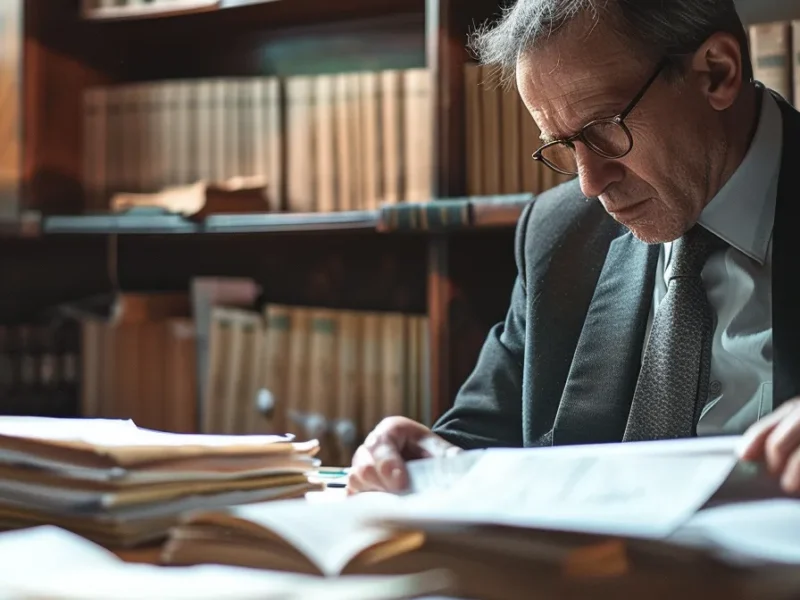After a DWI arrest, most people don’t immediately call an attorney. They wait. Maybe they’re embarrassed, maybe they think they can handle it themselves, or maybe they’re just hoping the problem will somehow resolve on its own. This delay – sometimes days, sometimes weeks – often costs them their case before it even really begins.
The assumption is that there’s plenty of time to figure things out, that the important part happens later in court. But DWI cases have critical deadlines and time-sensitive opportunities that disappear fast. By the time people realize they need help, damage has already been done that no lawyer can undo.
The Administrative License Hearing Deadline
Here’s what catches most people off guard: getting arrested for DWI triggers two separate processes. There’s the criminal case, which everyone expects. But there’s also an administrative license suspension that happens independently through the DMV, and this one has a shockingly short deadline.
In most states, drivers have somewhere between 10 to 15 days from arrest to request an administrative hearing to challenge license suspension. Miss this deadline, and the license gets automatically suspended regardless of what happens with the criminal charges. No exceptions, no extensions.
People miss this deadline constantly because nobody clearly explains it at the time of arrest. They’re focused on getting out of jail and dealing with immediate problems. By the time they think about getting legal help, the window has closed. Their license is gone for months even if they eventually beat the criminal charges.
Attorneys can request these hearings and often find grounds to challenge suspensions – problems with the traffic stop, testing errors, procedural violations. But only if the request happens within that narrow window. Wait too long, and this entire avenue of defense becomes irrelevant.
Evidence Disappears Fast
The evidence in DWI cases isn’t preserved forever waiting for defendants to get around to mounting a defense. Video footage from police dash cams and body cameras often gets recorded over after 30-60 days. Surveillance footage from nearby businesses might be deleted even faster. Witnesses forget details or become impossible to locate.
Attorneys who get involved early can preserve this evidence before it vanishes. They can issue preservation letters requiring police to maintain video footage. They can locate and interview witnesses while memories are fresh. They can photograph accident scenes or identify factors that support the defense.
People who wait weeks or months to seek help miss these opportunities entirely. By the time they decide they need an attorney, the evidence that could have saved their case is gone. All that’s left is the prosecution’s version of events with nothing to contradict it.
Early Intervention Changes Everything
Getting legal help immediately after a DWI arrest opens up options that don’t exist later. Attorneys can advise on whether to make statements to police during follow-up investigations. They can challenge blood draw warrants before blood gets tested. They can identify constitutional violations while the details are still clear.
This early involvement also affects how prosecutors view cases. When an attorney appears immediately, prosecutors know they’re dealing with someone who’s taking the charges seriously and will fight. This changes negotiation dynamics right from the start. Cases where defendants show up alone to initial court dates signal that they’re probably going to plead guilty eventually, which eliminates prosecution incentive to offer good deals.
Those who wait to talk to a DWI attorney until they’re already deep into the process find themselves with fewer options and less leverage. The time for the strongest defenses has passed.
People Misunderstand How Serious DWI Is
Part of the delay problem comes from not realizing how much is at stake. First-time DWI offenders often think it’s a minor charge that’ll result in a fine and maybe some classes. They don’t understand the potential jail time, the massive insurance increases, the employment problems, or the lasting record that affects everything from job applications to professional licenses.
By the time they realize how serious the consequences actually are – often at their first court appearance when reality hits – they’ve already lost valuable time. The charges haven’t gotten less serious because they were ignored. The prosecution has been building its case while the defendant did nothing.
The Cost Excuse Backfires
Many people delay hiring attorneys because of cost concerns. Legal fees seem expensive, and waiting feels like a way to avoid that expense or at least postpone it. But this logic completely backfires.
Early legal help is actually more cost-effective than late help. Attorneys who get involved immediately can often prevent charges from being filed, get cases dismissed at preliminary stages, or negotiate better deals before prosecutors invest significant time building their cases. These early resolutions are faster and cheaper than fighting cases that have already progressed to trial preparation.
Waiting until the last minute means paying for more work – research and investigation that should have happened weeks earlier, emergency motions to address problems that could have been prevented, and trial preparation that might have been unnecessary if the case had been handled properly from the start. The delay doesn’t save money. It wastes it.
Fear and Embarrassment Cause Paralysis
DWI arrests are humiliating. People feel ashamed and don’t want to talk about what happened, even to lawyers whose job is to help. This embarrassment causes paralysis – they know they should do something but can’t bring themselves to make the call.
The problem is that this emotional response has practical consequences. The legal system doesn’t care about feelings or wait for people to feel ready. Deadlines pass, opportunities disappear, and cases get harder to defend while people work through their emotions.
Attorneys handle DWI cases constantly. They’re not judging clients or making them feel worse about the situation. They’re focused on fixing the legal problem. But they can only help if they’re actually contacted.
The Illusion of “Waiting to See What Happens”
Some people adopt a wait-and-see approach, figuring they’ll get an attorney if things start looking bad. This strategy fails because by the time things obviously look bad, it’s too late to implement the defenses that would have prevented that outcome.
DWI cases don’t suddenly turn serious – they’re serious from the moment of arrest. Waiting to see what happens just means watching opportunities slip away while hoping for outcomes that won’t materialize without active defense.
Time Is the Most Valuable Resource
In DWI cases, time matters more than almost anything else. Evidence exists or it doesn’t. Deadlines are met or they’re missed. Witnesses remember or they forget. These aren’t things that can be fixed later with enough effort or money.
The difference between contacting an attorney the day after arrest versus three weeks later can literally determine whether someone keeps their license, avoids jail time, or ends up with a permanent criminal record. That’s not an exaggeration – it’s the reality of how time-sensitive DWI defense actually is.
People who treat DWI arrests like problems they can deal with eventually almost always regret the delay. The help they finally seek comes too late to undo the damage their waiting caused.


